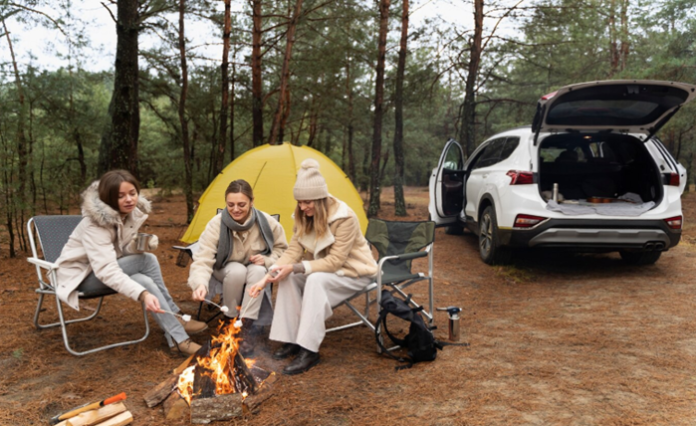There’s something restorative about escaping to nature for the weekend. For outdoor people in the UK, it is an opportunity to get off screens and get out on trails, trees, and fresh air. But a great weekend isn’t just about high‑energy hikes but balance. Combining movement, rest, and a bit of personal fun creates a routine worth repeating. Whether it’s an evening wind-down at home or a quiet moment in a cozy cabin, light entertainment like bingo games not on GamStop in 2025 can offer a fun, low-key way to relax after a day outdoors. This article will explore how to shape your weekend around energising outdoor rituals while making space for modern, light‑touch downtime.
Start with a Morning Routine Outdoors
Rise early and aim for golden‑hour walks or countryside hikes. This is best enjoyed when the soft light makes everything feel fresh. The favourites are the Pyg Track in Snowdonia, the beautiful Mam Tor in the Peak District, or the woods at the RSPB Pulborough Brooks. Take a thermos of tea or coffee and a small pocket‑book to make notes of early thoughts and observations of nature.
Build in Midday Activities That Vary Each Weekend
Rotate midday activities on your weekends:
- Take up outdoor training, such as park calisthenics
- Wild bathing in the local lakes or rivers
- Geocaching in nearby nature parks
These green workout options will also provide effective mental benefits. They help in decreasing stress and anxiety. It also helps to reduce depression. Additionally, it improves focus and mood.
Feeling social? Reserve a place on one of the group’s walks organised by Ramblers. Give a couple of hours to charities such as the Woodland Trust or RSPB. It’s excellent exercise with added community benefit.
After the activity, unwind with a casual pub lunch or café stop.
Have a Flexible Plan for Unpredictable Weather
In case rain ruins your outside activities, switch to indoor options. Indoor climbing is available at the best climbing locations in the UK, like Beacon in North Wales or The Adventure Hub in the Peak District, possibly followed by a trip to such free nature-themed museums as the new Evolution Garden in the Natural History Museum or Beamish Living Museum. These offer hands-on fun and learning without the soggy downside.
Pack an “indoor adventure” kit: a nature book, a travel podcast. This is just right during cool afternoons when hiking is in. The downpour does not dampen your weekend, but makes your adventure go indoors.
Evening Wind‑Downs in Nature or at Home
Change the daily adventure with a quiet habit of the evening. This is done by spending time on a camping trip or around the house—Stargaze at the best Dark Sky locations, such as Northumberland, Exmoor, or the Yorkshire Dales. Set up a fire pit evening or unwind in a hammock. This is a lightweight, comfortable, and ideal for forest camping.
Weekly Planning Tips: Make It a Habit
The consistency develops energy and mind crispness with time. Every day, doing outdoor exercises helps to get focused, decreases stress levels, and gets your sleep pattern right. Mid-week, pack your weekend bag: A layer of waterproof material, energy bars, a phone with maps (or a podcast to listen to), and a phone battery pack.
Clean and test your gears regularly. This can involve checking waterproof jackets and drying the tent, so nothing surprises you. Then set a simple “weekend challenge”: debut a new local trail, learn basic navigation, or even test your luck at Non Gamstop casinos. Just one session to mix enjoyment with novelty. What is important is that you feel revitalised but not exhausted with the routine. That mild construct makes outdoor weekend maintainable, enjoyable, and anticipatory.
Conclusion
An adequately well-planned weekend combines nature, improvisation, and personal time. It could be an adventure anytime during the day, but these routines give physical and mental clarity without straining. Your schedule does not have to be very strict. Flex it with the weather, mood, or location. Sometimes, it’s about finding moments of enjoyment, even during quiet spells.

